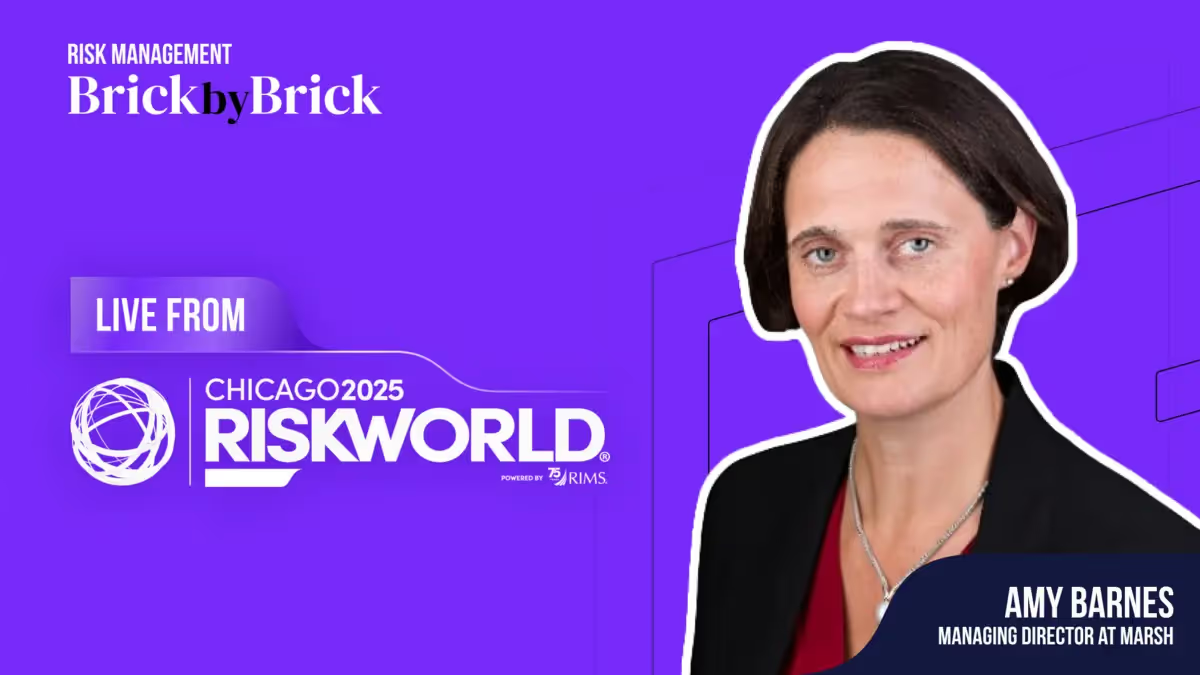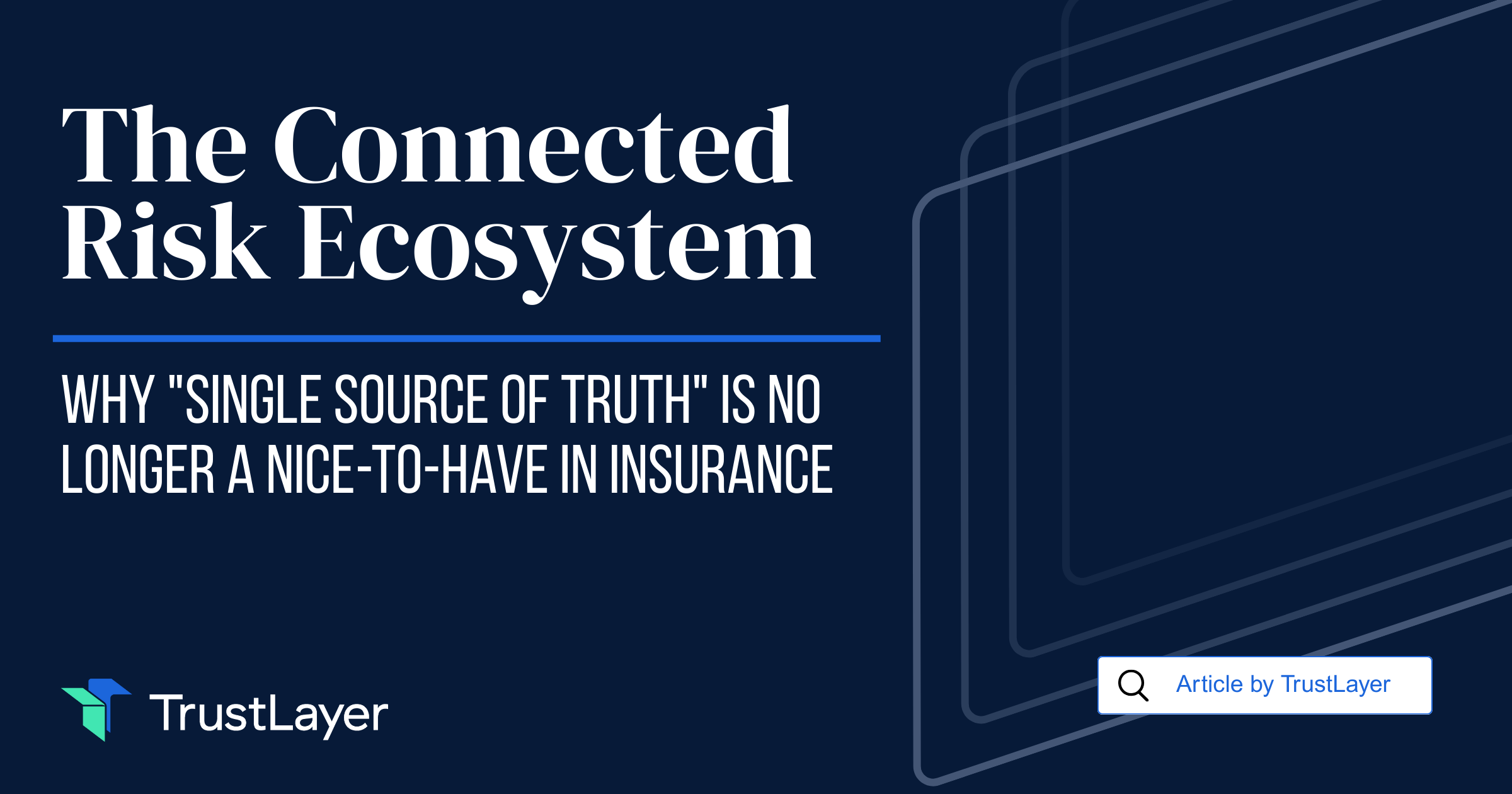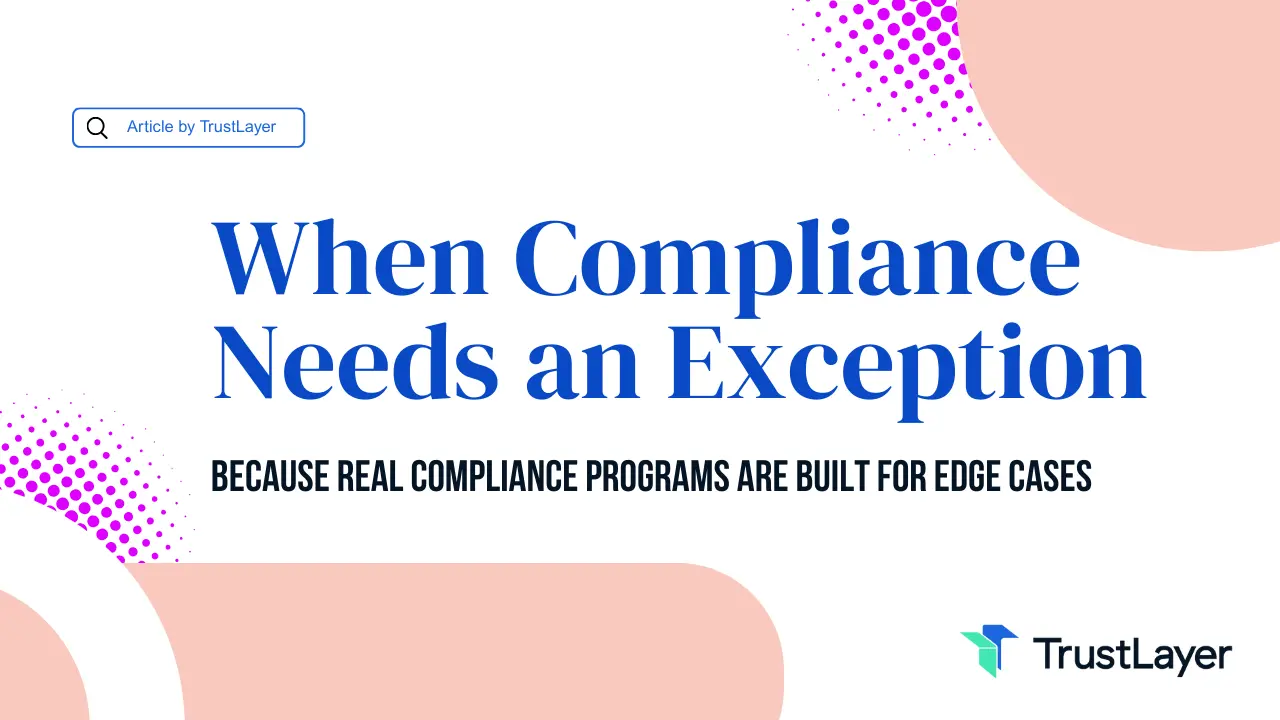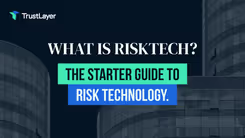 Resources
Resources Climate Resilience in a Complex World: Strategic Risk Management with Amy Barnes of Marsh
Climate Resilience in a Complex World: Strategic Risk Management with Amy Barnes of MarshClimate Resilience in a Complex World: Strategic Risk Management with Amy Barnes of Marsh

In a recent episode of Brick by Brick, host Jason Reichl sits down with Amy Barnes, Head of Climate and Sustainability Strategy at Marsh, for an eye-opening conversation about how climate change is fundamentally reshaping business operations. From innovative supply chain tools that expose hidden tariff impacts to the evolution of risk management from cost center to strategic enabler, Amy shares practical insights that could transform how your organization approaches climate resilience tomorrow.
To find out how TrustLayer manages risk so that people can build the physical world around us, head to TrustLayer.io.
The End Game: Making Climate Teams Obsolete
Amy opens with a surprising goal that should reframe how every business leader thinks about climate strategy: "My aim around climate is to not need a central climate team, because thinking about extreme weather and how extreme weather is changing should just be the way people do things around here."
This isn't about eliminating climate focus—it's about embedding it so deeply into business operations that it becomes second nature. Just like companies don't have separate "electricity teams" because power is fundamental to operations, climate considerations should be woven into every decision from procurement to real estate to workforce planning.
It's Not Just Weather—It's Your Entire Business Model
"You don't need to understand—you don't need to have a degree in physics or meteorology to know that we're experiencing more extreme weather and that we need to be able to respond to that," Amy explains. But climate strategy goes far beyond preparing for storms.
Amy breaks it into two critical areas: First, how are businesses decarbonizing? This means evaluating new building materials, alternative fuels, and emerging technologies. Can your insurance handle low-carbon cement or mass timber construction? Second, how do you cope with climate impacts affecting every business with assets or people—from health risks due to extreme heat to supply chain disruptions when water becomes scarce.
The ROI Reality: Climate Investment Isn't Optional
When Jason asks about moving legacy industries forward, Amy gets straight to business fundamentals: "I think the starting point with so much of this is having a clear return on investment."
Her example hits home: London landlords with buildings that don't meet environmental standards can't achieve the same rent levels or occupancy rates as climate-smart properties. "So you start to be able to build the business case that if we want to stay relevant, every single business is having to evolve and invest for the future all the time for various different reasons."
The message is clear: climate adaptation isn't an add-on cost—it's competitive positioning.
Innovation in Action: The Tariff Simulator Revolution
Amy reveals one of Marsh's most practical innovations: a tariff simulator built into their Centris supply chain platform. "Once you have that visibility, we plug in the tariff simulator, and the tariff simulator allows our clients to understand how they may be affected by tariffs."
But here's the game-changer: "If you as a supplier would say to me, 'Look, I've got to put my prices up by 10% because of tariffs,' at the moment, I have no way of challenging that. Using this tariff simulator, I can understand the supply chain that sits behind you, and I can see that, actually, the composite impact on your supply chain means you should only be giving me a 3.2% increase rate."
This isn't just about tariffs—it's about having data-driven conversations instead of accepting cost increases at face value.
The Complexity Advantage: Why Volatility Creates Opportunity
"Business leaders have never had to manage through so much complexity," Amy acknowledges, but she sees this as an opportunity: "which means that there are more sources of volatility for the business, which means actually insurance becomes more important because we can take out that volatility."
The winners? "The people that can provide you with the insights to understand what's driving the volatility, to minimize the cost of containing the volatility." Companies that can help clients navigate complexity rather than just transfer risk will dominate the market.
Breaking the "Department of No" Cycle
Over her twenty-plus-year career, Amy has watched risk managers transform from compliance officers to strategic partners. "It's no longer that insurance was a department that you were sort of sent to. It's now a destination. People realize they're addressing really complex risk issues, and they're part of the financial security of the organization."
The shift came from having better data and tools that provide operational insights. Risk managers now help businesses thrive, not just survive. As Amy puts it: "They have tools, they have experience, and they have an ability to help businesses thrive."
Final Thoughts
Amy's advice for the next generation entering risk management is refreshingly direct: "Don't think that there is a big brain out there that has all of the bright ideas. We need everyone to own the issues and to lean in. Step up. If you see problems, lean in, figure out how to fix them, be curious, and be proud of the industry that you're in because there's so much we can achieve."
The companies that will succeed aren't the ones avoiding climate challenges—they're the ones turning complexity into competitive advantage through strategic thinking, innovative tools, and collaborative approaches across all business functions.
To hear more strategic insights from someone who's spent decades helping companies rethink their approach to risk financing, tune in to this episode of Risk Management: Brick by Brick.
👉 Spotify: https://bit.ly/4mPXj23
👉 Apple Podcasts: https://apple.co/41oQ0Wy
👉 YouTube: https://youtu.be/FzAhOtKkaWE
Podcast Host: Jason Reichl
Executive Producer: Don Halliwell















